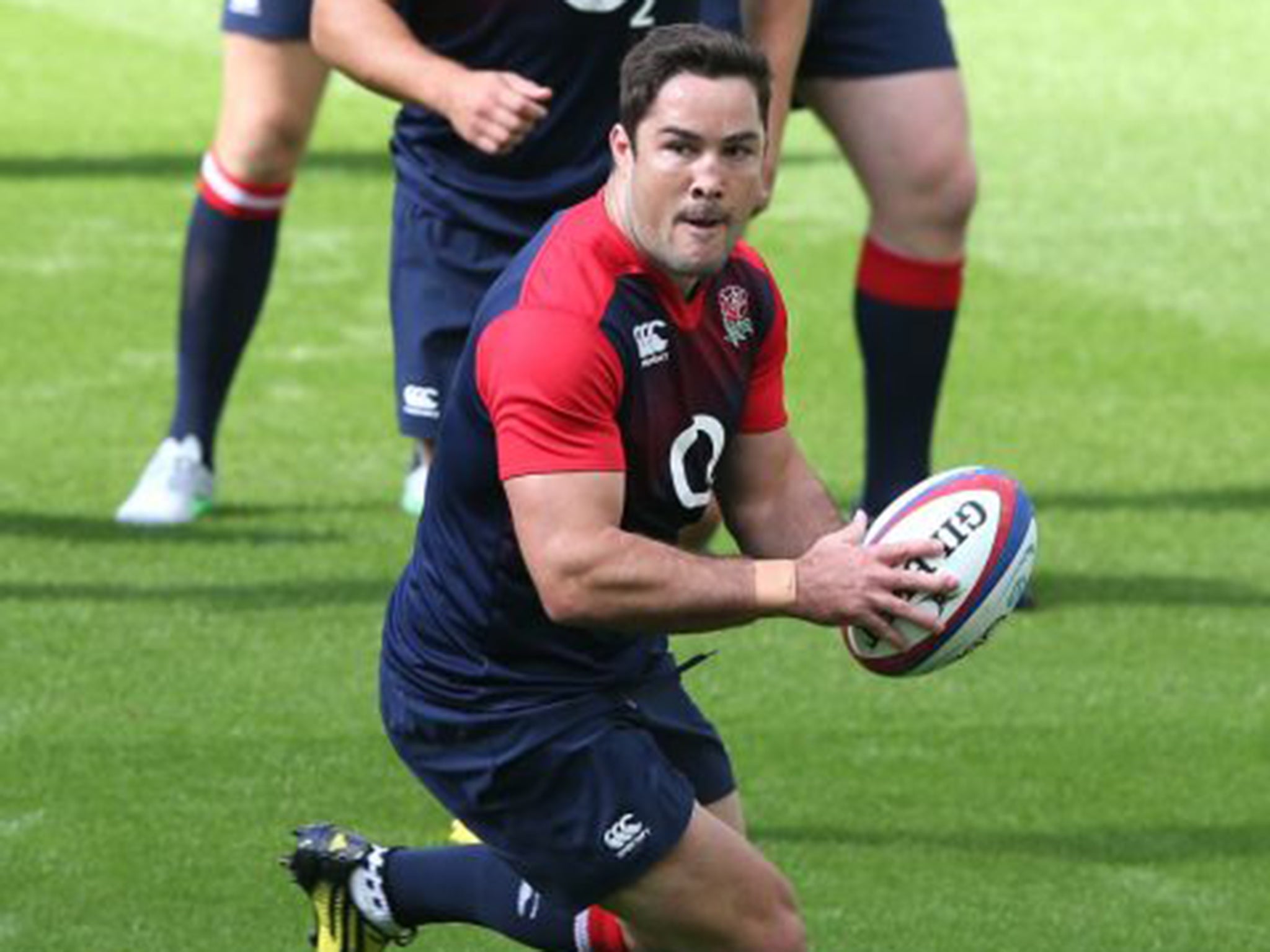RWC 2015: Brad Barritt wants no more 'soft' touches
Barritt’s name has been among the first on the red-rose team sheet since Lancaster succeeded Martin Johnson

Your support helps us to tell the story
From reproductive rights to climate change to Big Tech, The Independent is on the ground when the story is developing. Whether it's investigating the financials of Elon Musk's pro-Trump PAC or producing our latest documentary, 'The A Word', which shines a light on the American women fighting for reproductive rights, we know how important it is to parse out the facts from the messaging.
At such a critical moment in US history, we need reporters on the ground. Your donation allows us to keep sending journalists to speak to both sides of the story.
The Independent is trusted by Americans across the entire political spectrum. And unlike many other quality news outlets, we choose not to lock Americans out of our reporting and analysis with paywalls. We believe quality journalism should be available to everyone, paid for by those who can afford it.
Your support makes all the difference.There were two reasons why the England hierarchy ended last season’s Six Nations Championship in something of a strop: firstly, they finished second rather than first for the fourth consecutive tournament; secondly, they felt the red-rose defence had been “soft round the edges”, to borrow the head coach Stuart Lancaster’s term. If Brad Barritt has his way, it will not be soft anywhere over the forthcoming weeks of World Cup business.
“We’ve made a goal for ourselves at this tournament,” said the Saracens centre and England’s organiser-in-chief when it comes to playing without the ball. “We want to be the best defensive team. We want to be the most physical team, the team with a defence that forces opponents to make the errors that present us with attacking opportunities.”
Barritt’s name has been among the first on the red-rose team sheet since Lancaster succeeded Martin Johnson as top dog following the 2011 World Cup shambles in New Zealand. The coach had worked with the centre at second-tier Saxons level and come to admire his bravery, efficiency and hard-headedness in erecting and manning the barricades: not just in terms of one-on-one tackling, but in the wider organisational disciplines that lie at the heart of any successful side.
It might even be said that Barritt acts as a comfort blanket for the coach – that he offers control, consistency and certainty in a sport that can easily descend into chaos. And when the South African-born centre spoke yesterday, you could see Lancaster’s point.
“We don’t set goals for ourselves when it comes to the number of tackles we make in a match, because each Test is its own entity,” Barritt commented. “What we do say is that we want to be comfortable in going 30 or 40 phases in defence without conceding cheap points or giving away penalties. We want a defence that is prepared for everything and in a condition to get results off the back of what we do.”
Precious little shakes Barritt to the core: anyone who can suffer a sliced eyeball and attempt to keep playing in the face of perfectly reasonable medical advice, as he did in Durban three years ago, cannot fairly be described as one of life’s drama queens. But there was a team meeting on Sunday evening that left him in as emotional a state as he could remember.
“It was a fantastic meeting – really quite moving for every player,” he said. “Each man came out of it feeling he was a bigger part of something special, feeling really honoured to be on this ride. The way Stuart spoke was hugely emotive and I’ve no doubt it resonated throughout the squad.”
Join our commenting forum
Join thought-provoking conversations, follow other Independent readers and see their replies
Comments